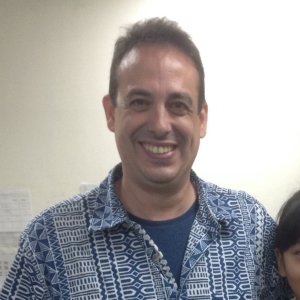Deze recentie kan spoilers bevatten
A Good Series That Missed The Opportunity To Be Truly Incredible!
“Awaken” is a series with an interesting premise. One that seems to be part James Cameron’s “Dark Angel” and part horror of Nazi Germany where some of the most horrific medical experiments were conducted on Jews and other races thought to be inferior. While the series works as a whole, for the most part, it teeters between being a mystery/thriller and being a “moral compass” for those who commit unspeakable atrocities against others for the sake of science. And in some ways, the series comes up short on both.
Superintendent Jung Woo Do is a brilliant detective who heads the Police Special Agency’s special unit. At first, we’re given a glimpse into a man who’s quirkiness is merely the superficial layer of a man who’s like a Jason Bourne: he’s always thinking several moves ahead of everyone else. And while, we admire his intelligence, we also find that there’s a reason for it.
Go back 28 years to White Night Village, a locale on a remote island where horrifying medical experiments were conducted on orphan children for the sake of finding a drug that would slow/eradicate the aging process. Thanks to a young Jung Woo Do, he destroyed the village with only a few survivors as we find that Jung Woo Do is a man with more than a few exceptional abilities. Still, the very idea of scientists experimenting with children should be more than enough to stop anyone’s blood cold.
Jump to the present, and we find that the experiments from 28 years ago are being conducted again with top politicians and people in the higher echelons of society are also taking part for the hope of the miracle drug that will grant immortality.
Dr. Jamie Leighton is a Korean American who is a part of the FBI’s BAU (Behavioral Analysis Unit), and one of the FBI’s elite. She finds herself summoned back to Korea to investigate a series of bizarre murders. Unfortunately, she also ends up being the weakest character of the series. She makes amateur mistakes that no FBI agent would ever make, not to mention that her English is heavily accented, which would also be an issue. Especially for someone who essentially grew up in the U.S. It seems that she’s more of a liability than anything else as she’s captured three times throughout the series. By the end of the series, we’re left to wonder what the point of her character was—aside from being a survivor of White Night Village.
To complete the trio, we have Lt. Gong Hye Won, who is a very capable police officer. She’s rash and has a hot temper. She’s also quite effective in hand-to-hand combat. It also becomes clear that she has feelings for Jung Woo Do, despite the fact that he really doesn’t feel the same. Gong Hye Won soon finds out that her own father is one of the principal scientists involved in the medical experiments. At first, she follows him, trying to figure out why he’s always at work. But when she finds out what he’s really up to, and that children are dying because of his experiments, she tries to talk to him. This is understandable—at first. I’m not exactly sure how Gong Hye Won’s character becomes so skewed, as she’s far more interested in trying to be diplomatic with her father than forcing him to account for the murders of innocent children, even after it’s more than apparent that her father doesn’t feel the slightest remorse of his actions because he firmly believes it’s all in the name of science. Nazi German doctors all but said the same thing. That didn’t make them any less of the monsters they truly were. Gong Hye Won is a huge disappointment where this is concerned. If the murders of children aren’t enough to get you to do what’s right, then I’m not sure what could.
While the immoral actions of the murders of children are addressed, it ultimately ends up taking a backseat to Jung Woo Do trying to discover who’s behind the experiments rather than trying to save the children as being in conjunction with the overall mission. There are a few scenes where Jung Woo Do—of all the characters—displays the most concern and outrage, but not much is done beyond that to try and save children who are still being slaughtered.
Namkoong Min (Jung Woo Do) is easily the best actor of the series, turning in a marvelous performance as the extremely intelligent and often quirky superintendent. The series takes some delight in making the viewer wait to see Jung Woo Do’s full complement of abilities, which makes him out to be like a superhero. He reminds me of Max from “Dark Angel.”
The end of the series is a little far-fetched and a slight letdown as Jung Woo Do and everyone confronts the mastermind and the scientists behind the experiments. And yet, there is really no acknowledgment about what was going on to the community at large. We have the reporter who leaks the story, but there are no scenes of public anger about what has happened or anything describing the experiments and the cost of the lives of so many children. I was even waiting to see if the Blue House would make some kind of announcement. Instead, the end was more about Jung Woo Do’s disappearance, Dr. Leighton finally going home—for all the good she did—and Gong Hye Won’s promotion.
The writers had a real opportunity to address and acknowledge the atrocities of the story, but they didn’t have the courage to go there, which is a real shame. This series could have been thought-provoking and asked for some serious soul-searching, but this doesn’t happen. All in all, the series is certainly entertaining, but it misses out on the chance to delve much deeper than it ended up doing.
Superintendent Jung Woo Do is a brilliant detective who heads the Police Special Agency’s special unit. At first, we’re given a glimpse into a man who’s quirkiness is merely the superficial layer of a man who’s like a Jason Bourne: he’s always thinking several moves ahead of everyone else. And while, we admire his intelligence, we also find that there’s a reason for it.
Go back 28 years to White Night Village, a locale on a remote island where horrifying medical experiments were conducted on orphan children for the sake of finding a drug that would slow/eradicate the aging process. Thanks to a young Jung Woo Do, he destroyed the village with only a few survivors as we find that Jung Woo Do is a man with more than a few exceptional abilities. Still, the very idea of scientists experimenting with children should be more than enough to stop anyone’s blood cold.
Jump to the present, and we find that the experiments from 28 years ago are being conducted again with top politicians and people in the higher echelons of society are also taking part for the hope of the miracle drug that will grant immortality.
Dr. Jamie Leighton is a Korean American who is a part of the FBI’s BAU (Behavioral Analysis Unit), and one of the FBI’s elite. She finds herself summoned back to Korea to investigate a series of bizarre murders. Unfortunately, she also ends up being the weakest character of the series. She makes amateur mistakes that no FBI agent would ever make, not to mention that her English is heavily accented, which would also be an issue. Especially for someone who essentially grew up in the U.S. It seems that she’s more of a liability than anything else as she’s captured three times throughout the series. By the end of the series, we’re left to wonder what the point of her character was—aside from being a survivor of White Night Village.
To complete the trio, we have Lt. Gong Hye Won, who is a very capable police officer. She’s rash and has a hot temper. She’s also quite effective in hand-to-hand combat. It also becomes clear that she has feelings for Jung Woo Do, despite the fact that he really doesn’t feel the same. Gong Hye Won soon finds out that her own father is one of the principal scientists involved in the medical experiments. At first, she follows him, trying to figure out why he’s always at work. But when she finds out what he’s really up to, and that children are dying because of his experiments, she tries to talk to him. This is understandable—at first. I’m not exactly sure how Gong Hye Won’s character becomes so skewed, as she’s far more interested in trying to be diplomatic with her father than forcing him to account for the murders of innocent children, even after it’s more than apparent that her father doesn’t feel the slightest remorse of his actions because he firmly believes it’s all in the name of science. Nazi German doctors all but said the same thing. That didn’t make them any less of the monsters they truly were. Gong Hye Won is a huge disappointment where this is concerned. If the murders of children aren’t enough to get you to do what’s right, then I’m not sure what could.
While the immoral actions of the murders of children are addressed, it ultimately ends up taking a backseat to Jung Woo Do trying to discover who’s behind the experiments rather than trying to save the children as being in conjunction with the overall mission. There are a few scenes where Jung Woo Do—of all the characters—displays the most concern and outrage, but not much is done beyond that to try and save children who are still being slaughtered.
Namkoong Min (Jung Woo Do) is easily the best actor of the series, turning in a marvelous performance as the extremely intelligent and often quirky superintendent. The series takes some delight in making the viewer wait to see Jung Woo Do’s full complement of abilities, which makes him out to be like a superhero. He reminds me of Max from “Dark Angel.”
The end of the series is a little far-fetched and a slight letdown as Jung Woo Do and everyone confronts the mastermind and the scientists behind the experiments. And yet, there is really no acknowledgment about what was going on to the community at large. We have the reporter who leaks the story, but there are no scenes of public anger about what has happened or anything describing the experiments and the cost of the lives of so many children. I was even waiting to see if the Blue House would make some kind of announcement. Instead, the end was more about Jung Woo Do’s disappearance, Dr. Leighton finally going home—for all the good she did—and Gong Hye Won’s promotion.
The writers had a real opportunity to address and acknowledge the atrocities of the story, but they didn’t have the courage to go there, which is a real shame. This series could have been thought-provoking and asked for some serious soul-searching, but this doesn’t happen. All in all, the series is certainly entertaining, but it misses out on the chance to delve much deeper than it ended up doing.
Vond je deze recentie nuttig?


 1
1














